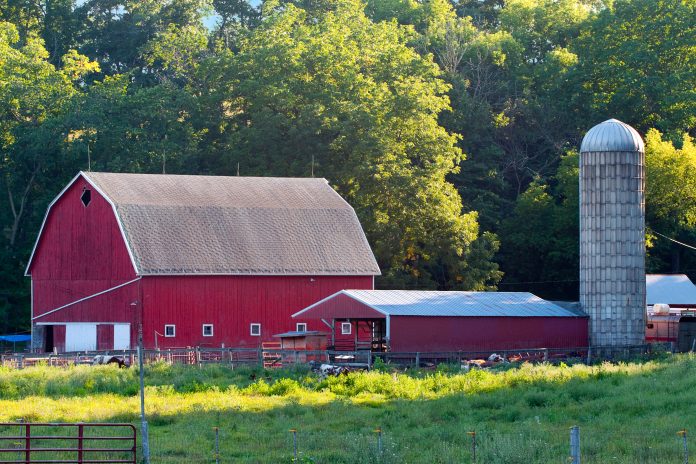A new federal bill will make historic investments in voluntary, long underfunded conservation programs. The Inflation Reduction Act, passed by Congress Aug. 12, will invest another $20 billion in voluntary conservation programs for farmers over the next decade.
Supporters of the bill, which passed along party lines in both the House and the Senate, say it will help farmers adopt or continue climate-smart agricultural practices. They also say it will help the U.S. move towards clean energy sources.
“Agriculture has long been at the forefront of our fight against climate change … this agreement provides (U.S. Department of Agriculture) with significant additional resources to continue to lead the charge,” said U.S. Agriculture Secretary Tom Vilsack in a July 28 statement.
Climate-smart ag
The bill includes about $20 billion in investments for existing USDA conservation programs, meant to target climate smart agricultural practices.
The Environmental Quality Incentives Program will receive another $8.45 billion for grants that improve soil carbon storage or reduce emissions. The Conservation Stewardship Program will receive $3.25 billion for financial and technical assistance that helps farmers adopt or maintain conservation practices.
The Agricultural Conservation Easement Program will receive $1.4 billion. Another $1.3 billion will go towards Conservation Technical Assistance. The Regional Conservation Partnership Program will receive $6.75 billion to support state, multi-state or watershed level projects.
Other climate related investments include a long list of tax credits for carbon sequestration and for clean energy.
Debt relief
The bill repeals a section of the American Rescue Plan Act that created a $4 billion debt relief program for Black and Indigenous farmers and other farmers of color, and replaces it with other debt relief programs for farmers.
The American Rescue Plan program was meant to respond to decades of documented discrimination against Black farmers and other farmers of color at the USDA through lending programs.
But since the American Rescue Plan passed in 2021, multiple groups of white farmers filed lawsuits to challenge the debt relief, calling it unconstitutional and saying it discriminated against them. Three federal district courts issued preliminary injunctions to stop the USDA from issuing payments through the program.
The new bill instead includes $2.2 billion for a program that would provide financial assistance to any farmers, ranchers or forest owners who are found to have experienced discrimination in USDA farm lending programs before Jan. 1, 2021. It also includes another $3.1 billion in debt relief for farmers who are in financial distress.
Rural areas
The bill will also invest about $14 billion in clean energy for rural communities. That includes helping rural electric cooperatives transition to clean energy, helping communities, farmers and small businesses invest in renewable energy and investments in infrastructure for domestic biofuels.
Another $5 billion will go towards climate smart forestry, forest health projects to help rural communities be more resilient against wildfires and prioritizing underserved forest owners and planting trees in urban communities.
Responses
Agriculture and conservation groups including the National Farmers Union, American Farmland Trust, National Corn Growers Association, National Wildlife Federation, American Forest Foundation, Environmental Working Group, Ohio Conservation Federation, Pasa Sustainable Agriculture and many more supported the bill, with several farm organizations applauding the investments in voluntary, incentive-based conservation programs.
“U.S. Department of Agriculture conservation programs are critically underfunded, preventing many interested farmers from participating each year. With additional support for these programs, farmers and ranchers can expand adoption of climate-smart practices and build more resilient operations,” wrote Rob Larew, president of the National Farmers Union, in an Aug. 4 letter to Congress on the bill.
Some environmental groups have criticized provisions of the bill that offer tax incentives for aging nuclear power plants, and that subsidize carbon capture projects. Others have argued it doesn’t go far enough in moving the U.S. toward clean energy.
“There are some troubling provisions in the legislation, including some that risk expanding fossil fuel use. Going forward, more action is needed to deepen U.S. emission reductions, help communities become more resilient to climate change, and address the disproportionate burdens of fossil fuel pollution borne by low-income communities and communities of color,” said Johanna Chao Kreilick, president of the Union of Concerned Scientists, which supported the bill, in an Aug. 7 statement.










